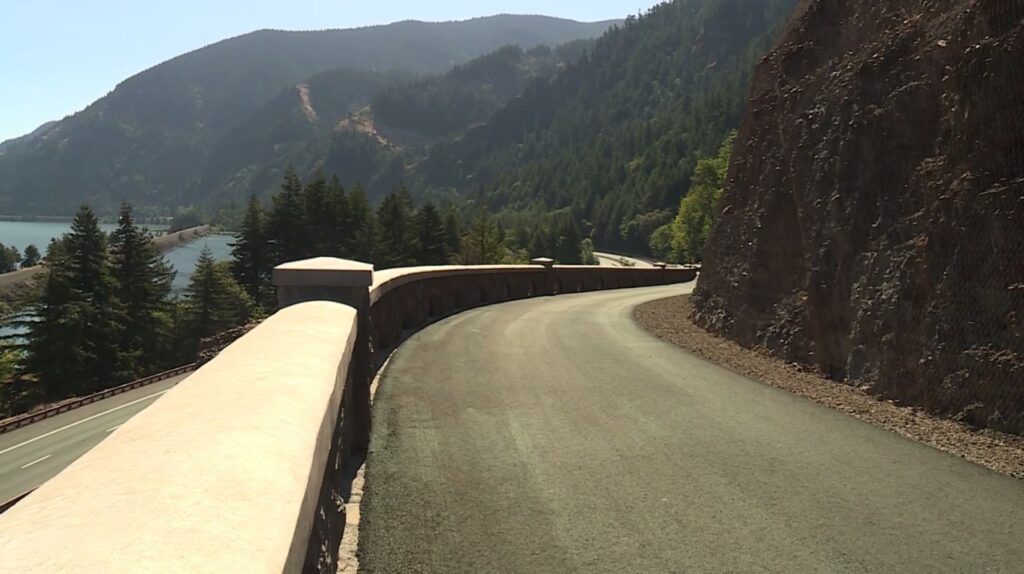
The new bike trail follows the path of the historic Columbia River Highway through the valley. (KOIN)
PORTLAND, Ore. (KOIN) — The federal government awarded $11 million to the Oregon Department of Transportation on Thursday, which will fund the state's ongoing work to complete the final section of the Columbia River Highway project.
Built between 1913 and 1922, the historic highway was split into sections and partially destroyed after the construction of Interstate 84. But over the past two decades, the state has been slowly restoring the picturesque 73-mile stretch.
Sen. Jeff Merkley called the project a win for Oregonians and the local economy.
“The Columbia River Gorge is one of the most beautiful and breathtaking landscapes in the United States,” said Markley. “The decades-long commitment to restore the iconic and historic Columbia River Highway is a testament to the vision and tenacity of many Oregonians. I share that vision and will continue to work to secure federal funding. Once completed, this incredible project will not only benefit our recreational and economic interests, but the trail will amaze Oregonians and visitors for generations to come.”

The ongoing restoration includes: Driving permitted area On the highway Hiking and biking trails It is managed by Oregon State Parks. The final section under construction will include a 1.7-mile paved bike and pedestrian trail connecting Mitchell Point to the Ruston Trailhead in Hood River.
Oregon plans to complete the restoration project by 2027. Once complete, the Columbia River Highway will be a “world-class bike and pedestrian experience” that is expected to attract millions of tourists from around the world, according to Sen. Ron Wyden and other lawmakers.
“Oregonians have sought solace in the majesty of the Columbia River Gorge for centuries,” Wyden said. “Combining the traditional infrastructure of the historic Columbia River Highway with the need for car-free exploration options allows Oregonians and visitors to safely experience one of Oregon's Seven Wonders first-hand, while creating positive personal and economic impacts. I will continue to support projects like this that improve livability for current and future Oregonians.”
The $11 million in funding was awarded to the state by the U.S. Department of Transportation's Federal Highway Administration.


